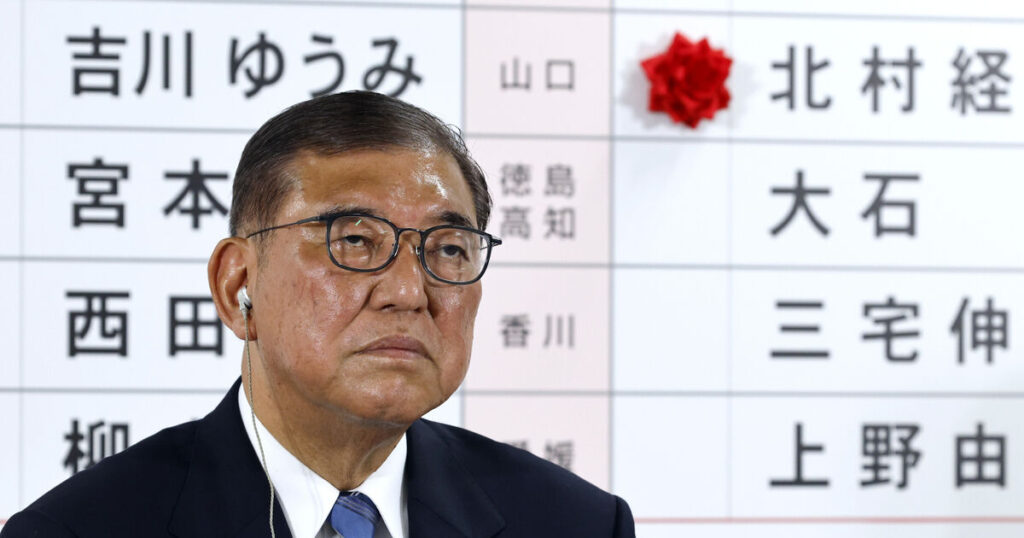Japanese Prime Minister Shigeru Ishiba’s ruling coalition has failed to secure a majority in the 248-seat upper house in a crucial parliamentary election, according to NHK public television.
Mr. Ishiba’s Liberal Democratic Party (LDP) and its junior coalition partner Komeito needed to win 50 seats in addition to the 75 seats they already held to reach their target. With only one seat remaining to be decided, the coalition secured 47 seats.
This loss represents another setback for Mr. Ishiba’s coalition, reducing it to a minority in both houses following their defeat in the lower house election in October, and exacerbating Japan’s political instability.
This marks the first time the LDP has lost a majority in both houses of parliament since the party’s founding in 1955.
Despite the outcome, Mr. Ishiba has expressed his determination to remain in office to address challenges such as US tariff threats. However, he may face pressure from within his party to resign or seek a new coalition partner.
“I will fulfil my responsibility as head of the number one party and work for the country,” he stated.
Mr. Ishiba had set a modest goal of obtaining a simple majority of 125 seats, requiring his LDP and Komeito to gain 50 seats to supplement their existing 75.
Exit poll results, released immediately after voting closed on Sunday night, largely indicated a significant setback for Mr. Ishiba’s coalition.
The LDP alone secured 39 seats, surpassing most exit poll projections of 32, and remains the largest party in the parliament, known as the Diet.
“It’s a tough situation. I take it humbly and sincerely,” Mr. Ishiba said during a live interview with NHK.
He attributed the poor performance to the fact that his government’s measures to combat rising prices had not yet reached many people.
While the election results won’t immediately trigger a change of government because the upper house lacks the authority to issue a no-confidence vote against the leader, it will undoubtedly intensify uncertainty surrounding his future and Japan’s political stability.
Mr. Ishiba may face calls from within the LDP to resign or find a replacement coalition partner.
Soaring prices, stagnant incomes, and heavy social security burdens are primary concerns for frustrated, cash-strapped voters. Stricter policies regarding foreign residents and visitors also emerged as a key issue, fueled by a rising right-wing populist party leading the campaign.
Sunday’s vote follows Mr. Ishiba’s coalition’s loss of a majority in the October lower house election, hampered by historical corruption scandals. Consequently, his government has been compelled to make concessions to the opposition to pass legislation through parliament.
The government has struggled to implement effective measures to alleviate rising prices, including the cost of Japan’s staple food, rice, and declining wages.
U.S. President Donald Trump has further intensified the pressure, criticizing the lack of progress in trade negotiations and the limited sales of U.S. vehicles and American-grown rice to Japan, despite shortages in domestic grain stocks.
A 25% tariff scheduled to take effect on August 1 has dealt another blow to Mr. Ishiba.
Mr. Ishiba resisted any compromise before the election. However, the prospects for a breakthrough after the election remain unclear, as the minority government would face challenges in forming a consensus with the opposition.
Frustrated voters were increasingly drawn to emerging populist parties. However, the eight major opposition groups were too fragmented to create a unified platform as a single, cohesive force and attract voter support as a viable alternative.


